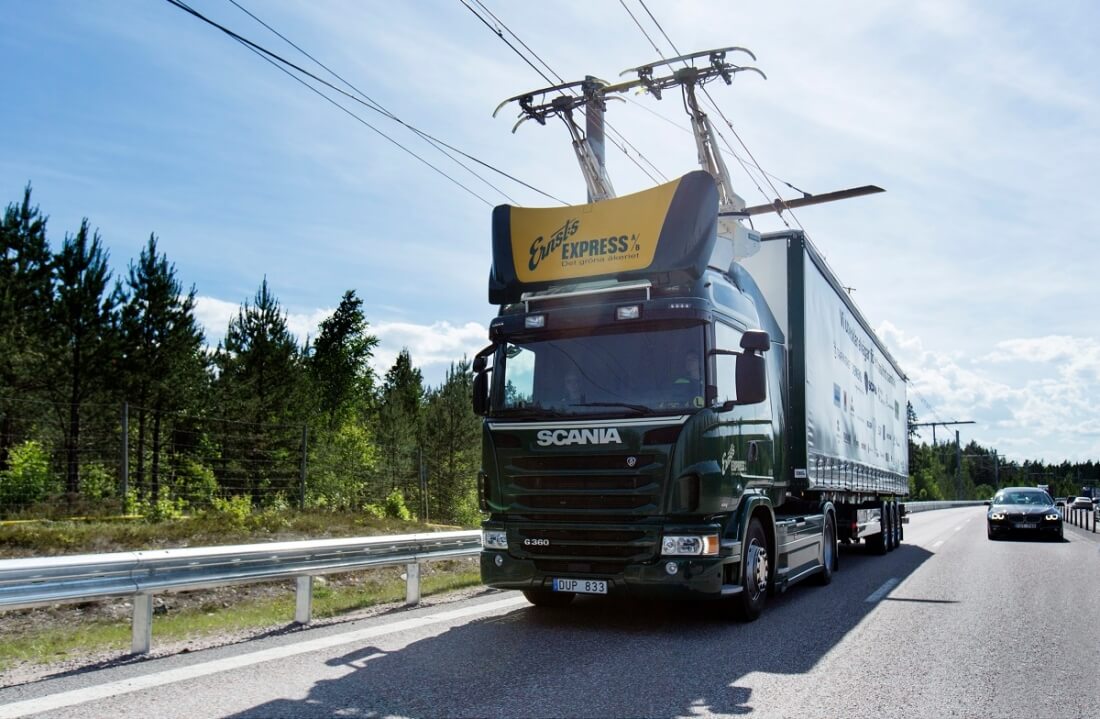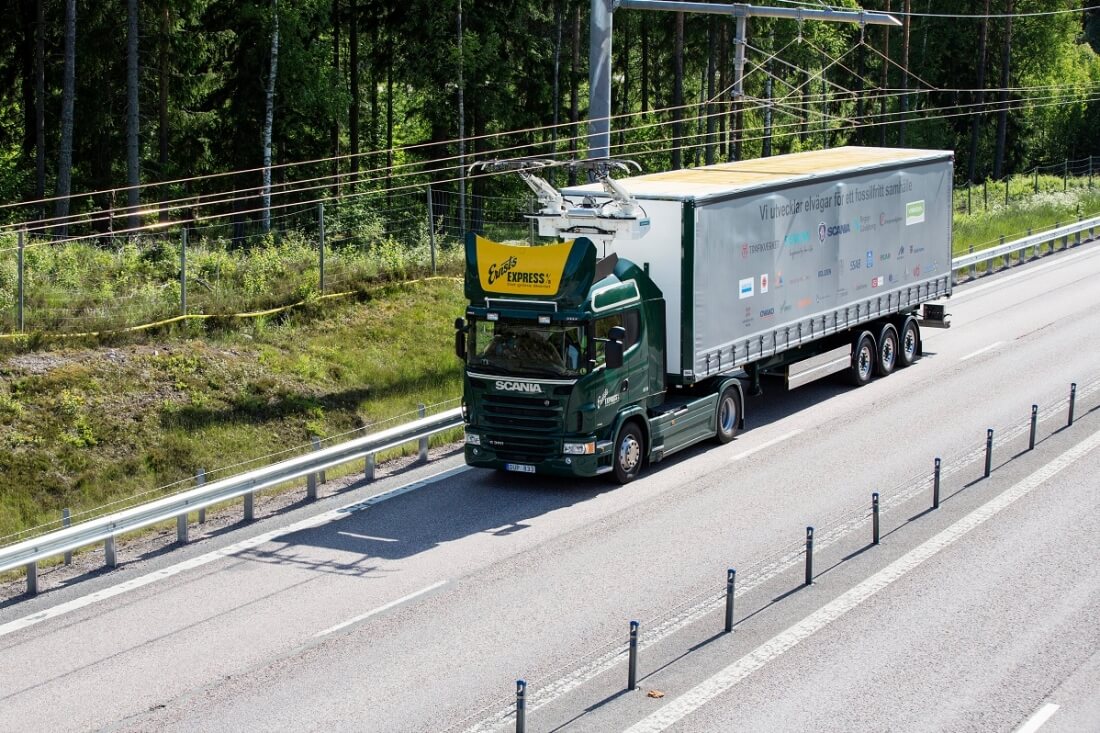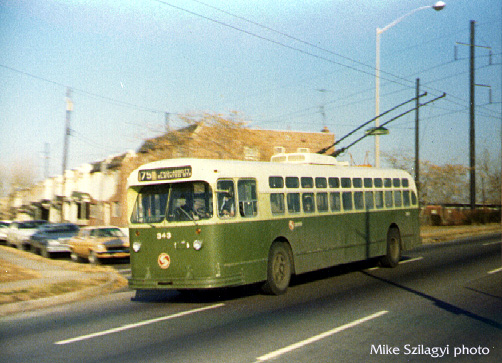
While advancements in electric truck technology continue to be made, there are still limitations due to factors such as size, weight, and expense. But an invention that has been around for almost 150 years could prove a solution to these issues.
German engineering company Siemens says that overhead electrical wires can be used to power electric trucks for theoretically unlimited distances. The vehicles’ pantograph power connectors can freely connect and disconnect to the overhead wires while traveling at speeds of up to 56 mph. The power the trucks draw can recharge an electric battery, which is used when traveling away from the ‘electric roads.’
Sweden has become the first country to test the conductive technology on a public highway. On a 2 kilometer (1.2 miles) stretch of the E16 highway near the city of Gavle just north of Stockholm, two diesel hybrid vehicles – made by Scania and adapted in collaboration with Siemens – will conduct the electric road trials over the next two years to see if it is suitable for wider deployment.
The test vehicles will operate in zero emission mode when connected to the overhead cables, switching back to diesel for operation outside of the contact lines. Siemens said the technology’s open configuration would allow the trucks to use other forms of power, such as battery or natural gas.

"The Siemens eHighway is twice as efficient as conventional internal combustion engines. The Siemens innovation supplies trucks with power from an overhead contact line. This means that not only is energy consumption cut by half, but local air pollution is reduced too," says Roland Edel, Chief Engineer at the Siemens Mobility Division.
Siemens is also bringing electric road technology to the US. A 1-mile stretch of power lines on a highway near the ports of Long Beach and Los Angeles is currently under construction.
Sweden is one of several European countries, including Norway and the Netherlands, aiming for the majority of vehicles on its roads to be of the zero emission variety by 2030.
https://www.techspot.com/news/65317-sweden-becomes-first-nation-open-electric-motorway-powers.html

